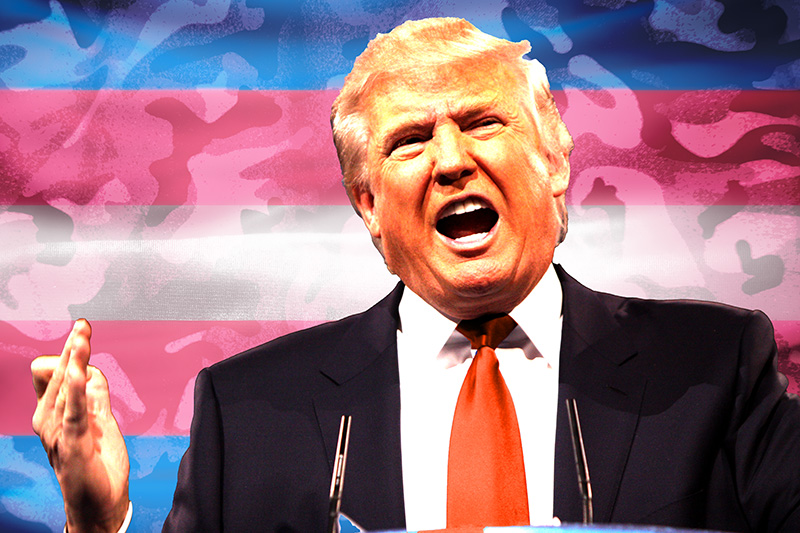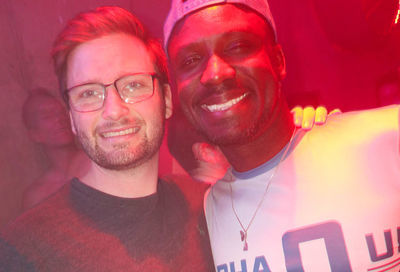Buttigieg on defensive during Democratic debate as Sanders, Steyer, Klobuchar pounce
Democrats spar over electability, offering differing views on how to best defeat President Trump in November

Seven Democratic presidential candidates sparred on stage in Goffstown, N.H. on Friday night, digging deeper than they previously had on issues that are likely to be raised by President Donald Trump in the general election as they try to suss out who is best positioned to beat him.
Just as in past debates, the Democrats largely engaged in substantive, intelligent discussions over issues affecting the country — and specifically those that Trump has signaled he plans to raise in order to peel away voters from Democrats in November. But this time, the candidates threw tougher punches at each other — though nothing compared to the attacks that the eventual nominee will face in the general election.
Because Pete Buttigieg and Bernie Sanders emerged from the Iowa caucuses effectively tied — the Associated Press has refused to declare a winner, given various irregularities and the days-long delay in reporting results that threw the results into question — it was only natural that the former South Bend (Ind.) mayor and Vermont senator would come under fire.
Criticisms of Sanders were identical to those lodged in past debates, focusing on the cost of his of “Medicare for All” health care plan and its implications for Americans with employer-sponsored insurance who would rather keep their current plans. Approximately 153 million Americans have employer-sponsored insurance, though estimates of how many actually like their plans, as well as the quality of the benefits provided, vary widely.
Sanders was also attacked by other candidates for embracing the label of “Democratic socialist,” a moniker that some Democrats fear would doom him in a country where the word “socialism” is frequently conflated with “communism” and can evoke Cold War-era images of Soviet- and Chinese-influenced puppet governments across Eastern Europe and Southeast Asia among older Americans. But Sanders parried the attack when asked by the debate moderators about how Trump might weaponize that label, saying “Donald Trump lies all the time.”
Some progressives and Sanders supporters have argued in recent months that the “socialist” attack line has lost its punch, as Republican candidates since the 1960s have referred to every Democratic presidential candidate, and even some of the most conservative Democrats ever elected to Congress, as “socialists” merely by dint of their party affiliation.
For Buttigieg, the attacks largely centered around his inexperience, youth, and relatively thin resumé as the former mayor of a town of about 100,000 people. Buttigieg, following an archetype established by former President Barack Obama 12 years ago, attempted to turn those criticisms into a positive, casting himself as a Washington outsider who has experience dealing with real-life problems on the ground and can steer the country in a new direction.
“I’m interested in the style of the politics we need to put forward to actually finally turn the page,” Buttigieg said, taking a jab at former Vice President Joe Biden. “I freely admit that if you’re looking for the person with the most years of Washington establishment experience under their belt, you’ve got your candidate, and of course it’s not me.”
But Sen. Amy Klobuchar (D-Minn.) attacked Buttigieg for lacking substance and seriousness, noting that Buttigieg had been casting aspersions at Washington politicians on the campaign trial while she, Sanders, and Sen. Elizabeth Warren (D-Mass.) were taking seriously their responsibilities as jurors during President Trump’s recent impeachment trial.
“…[A]s you were campaigning through Iowa and three of us were jurors in that impeachment hearing, you said it was exhausting to watch and that you wanted to turn the channel and watch cartoons,” Klobuchar said in a speech where she praised colleagues like Sen. Doug Jones (D-Ala.) and Sen. Mitt Romney (R-Utah) for voting to impeach the president.
“It is easy to go after Washington, because that’s a popular thing to do,” Klobuchar added. “It is much harder to lead, and take those difficult positions. Because I think this [habit of] going after every single thing that people do, because it’s popular to say, and makes you look like a ‘cool newcomer,’ I don’t think that’s what people want right now. We have a newcomer in the White House, and look where it got us.”

Buttigieg was also attacked by billionaire Tom Steyer, who attempted to cast himself as the most electable option, arguing that his business experience makes him the only candidate that can defeat Trump by exposing the president as a paper tiger when it comes to the country’s strong economy. Steyer worried aloud that Buttigieg would not be tough enough to deal effectively with the president on a debate stage.
“You need to be able to go toe-to-toe with this guy on the debate stage and take him down or we’re going to lose,” he said.
Steyer — who ranks second in an average of South Carolina primary polls, due to a strong showing among African-American voters — also raised Buttigieg’s struggle to gain traction with voters of color, in part due to his record on criminal justice issues as mayor of South Bend. (Frequently pivoting back to the issue of race and the struggles facing African-American communities, Steyer also attacked Biden, demanding he apologize for racist remarks made by a state senator who is supporting the former vice president.)
Sanders attacked Buttigieg from a third angle, noting that the former mayor has received significant support from billionaires and monied interests that could compromise his values and priorities should he be elected. He compared Buttigieg unfavorably to presidential contender and billionaire Michael Bloomberg, who was not present on stage but has been spending millions on television ads in various states ahead of the Mar. 3 “Super Tuesday” primary contests.
Prior to the debate, Sanders slammed Buttigieg during a press conference during which he read headlines from several major newspapers and magazines touting the mayor’s support from Wall Street financiers and pharmaceutical companies, and his coziness with corporate interests.
“In terms of money in politics, our campaign — and I am enormously proud of this — unlike some of the folks up here, I don’t have 40 billionaires, Pete, contributing to my campaign, coming from the pharmaceutical industry, from Wall Street, from the big monied interests,” Sanders said during the debate, noting that his average campaign contribution is $18.50. “If we want to change America, you’re not going to do it by electing candidates who are going out to rich people’s homes begging for money.”

Buttigieg countered, arguing that the Democratic nominee will need as much money as possible, from all sorts of sources, to fight against Trump in the general election.
“We are going into the fight of our lives,” Buttigieg said. “Donald Trump, according to news reports, and his allies, raised $25 million today. We need to go into that fight with everything we’ve got. Now, I’ve been very clear, on both my record, where I have sued pharmaceutical companies, and what I’m campaigning for, that includes raising wages, and raising taxes on corporations and the wealthy.”
With polls showing that most rank-and-file Democratic voters believe defeating Trump is the most important priority for their next nominee, each candidate has put forth a vision for how to achieve that. But many voters are struggling to find their footing at a time when politics has become unmoored from conventional wisdom and the country is undergoing a massive realignment along class lines and cultural divides that is likely to shape the political landscape for future decades.
Under the view embraced by Buttigieg, Democrats need to win over moderate professionals, combining the Democratic Party’s liberal base with independents and Republicans who are disgusted by President Trump’s actions in office.
Klobuchar employs a similar argument, offering herself up as an ideological moderate, but is more critical of the overall party’s shift towards white-collar professionals at the expense of the blue-collar voters in rural and formerly union-heavy areas whose support has contributed her large margins of victory in Minnesota.
Biden, Steyer, and Warren, to varying degrees, argue that the party needs to encourage Democrats to turn out in record numbers by activating parts of the party’s base, particularly voters of color. But Biden also speaks of his ability to attract older, whiter, working-class voters in the Midwest who voted for former President Barack Obama twice before switching their support to Trump in 2016.
Steyer, meanwhile, argues that Democrats need to employ a Karl Rove-style of fighting where one goes after their opponent’s perceived strength and turns it into a weakness, meaning that the eventual nominee must be able to expose Trump as fraudulent when it comes to delivering on his promises of economic prosperity for all.

Sanders employs a similar argument to Biden in terms of the need to win over the Midwest, but argues that such a goal can only be achieved by inspiring and activating younger voters, working-class voters of color, and disaffected voters who believe that the political system is rigged against them to turn out at the polls in large numbers.
By specifically focusing on the economic angst felt by the poor and middle-class, Sanders argues, the Democratic Party can re-embrace its New Deal roots and reposition itself as the party of the common man, which will then naturally attract some Obama-Trump voters back to the fold. Those voters, combined with his coalition of newer and disaffected voters, and a substantial number of Democrats who reliably vote in elections, will overwhelm Republicans at the polls, resulting in a landslide victory, he claims.
Businessman Andrew Yang, meanwhile, argues that Democrats are missing the mark at a time when automation is eliminating many working-class jobs and the economy is shifting away from one where employers offer guaranteed benefits to the “gig economy” where workers, including ride share drivers and delivery people, are hired for a limited amount of time, based on an employer’s needs. In his view, the only way to beat Trump is to address economic angst by doling out $1,000 a month to each American, who can then use that money to establish buying power and craft their lives around their own unique interests and priorities.
“Donald Trump is not the cause of all of our problems, and we are making a mistake when we act like he is. He is a symptom of a disease that has been building up in our communities for years and decades, and it is our job to get to the harder work of actually curing the disease,” Yang said.
“Most Americans feel like the political parties have been playing ‘you lose, I lose, you lose, I lose’ for years, and you know who’s been losing this entire time? We have, our communities have. Our communities’ way of life is disintegrating beneath our feet,” he added, noting that economic shifts and distrust in the political system have taken Democrats out of contention in states like Iowa and Ohio.
“These communities are seeing their way of life get blasted into smithereens, we’ve automated away 4 million manufacturing jobs and counting, we’re closing 30% of New Hampshire stores and malls, and Amazon, the force behind that, is literally paying zero in taxes,” he concluded. “These are the changes that Americans are seeing and feeling all around us every day, and if we get to the hard work of curing those problems, we will not just defeat Donald Trump in the fall, but we’ll actually be able to move our communities forward.”
Read more:
Gay dads say Uber driver called police because their son “needs his mother”
California posthumously pardons civil rights leader Bayard Rustin
Iowa Republican introduces bills to undermine LGBTQ legal protections
Support Metro Weekly’s Journalism
These are challenging times for news organizations. And yet it’s crucial we stay active and provide vital resources and information to both our local readers and the world. So won’t you please take a moment and consider supporting Metro Weekly with a membership? For as little as $5 a month, you can help ensure Metro Weekly magazine and MetroWeekly.com remain free, viable resources as we provide the best, most diverse, culturally-resonant LGBTQ coverage in both the D.C. region and around the world. Memberships come with exclusive perks and discounts, your own personal digital delivery of each week’s magazine (and an archive), access to our Member's Lounge when it launches this fall, and exclusive members-only items like Metro Weekly Membership Mugs and Tote Bags! Check out all our membership levels here and please join us today!


























You must be logged in to post a comment.